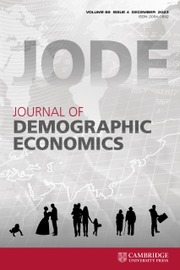Article contents
GARY BECKER’S CONTRIBUTIONS IN HEALTH ECONOMICS
Published online by Cambridge University Press: 24 March 2015
Extract
Gary Becker's contributions to health economics started somewhat indirectly. The early development in human capital theory, to which Becker was one of the main contributors, had obvious implications to the analysis of expenditures on health, but were almost exclusively focused on schooling and training (Schultz 1960; Becker 1962, 1964). Human capital theory advanced the idea that actions that imply present costs but enhanced individual productivity in the future could be seen as investments in a form of capital. Expenditures in health had many dimensions where such trade-offs were present. A good diet or exercising might not be very much fun, but potentially delivered long-term benefits in the form of a longer and healthier life. Preventive medical care demanded time and money, but might also improve future health prospects. This was recognized early on (Mushkin, 1962), but the first explorations of health as human capital were conceptually timid and did not give the field a push that remotely resembled that received by the economic research on education. For the years that followed, health economics persisted mostly as a field dealing with the analysis of health systems and delivery of health technologies.
- Type
- Special Section: Essays in honor of Gary Becker
- Information
- Copyright
- Copyright © Université catholique de Louvain 2015
References
REFERENCES
- 3
- Cited by


